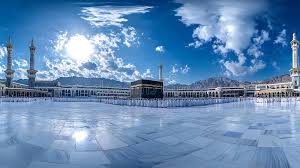THE DU’A YOU TAKE TO MAKKAH IS NOT THE DU’A YOU RETURN WITH

People travel to Makkah with specific requests in mind. They come with a list of things they want Allah to fix health problems, financial struggles, family issues, marriage delays, personal worries. Many have been carrying these concerns for years, waiting for the chance to finally stand before the Kaaba and ask directly.
But something changes once they begin the journey.
During tawaf, while moving with thousands of people, you start to see how small your individual worry is compared to the struggles of others. Parents walk with disabled children. Elderly people push through pain just to finish one round. Young people make du’a for forgiveness they never had the courage to speak about before. Observing this naturally shifts your perspective.
Then comes Sa’i between Safa and Marwah. The story of Hajar becomes more real. Her desperation, her trust, her running and searching it makes a person reconsider what true dependence on Allah looks like. By the time many people complete their Sa’i, their priorities begin to move from “fix my problem” to “strengthen my heart.”
The environment of Makkah itself also plays a role. Every corner reminds you of accountability, patience, and the shortness of life. You see people crying quietly, others reading Qur’an with focus, others making long du’as for things they will never reveal. This kind of atmosphere makes a person reflect on what truly matters.
By the end of the pilgrimage, many people realise that what they asked for at the beginning of the journey is not what they are asking for anymore. The request becomes more mature, more connected to the Hereafter, and less tied to momentary frustrations.
Some return home asking Allah for guidance instead of control, for contentment instead of specific outcomes, and for closeness to Him instead of quick solutions.
This doesn’t mean their original du’as were wrong. It simply means the journey helped them see their life from a wider angle. Hajj and Umrah cleanse the heart in a way that naturally reshapes a person’s priorities.
The change is simple:
They arrived wanting their situation to improve.
They left wanting themselves to improve.
And that is one of the quiet gifts of the pilgrimage it realigns a person with what truly lasts.

